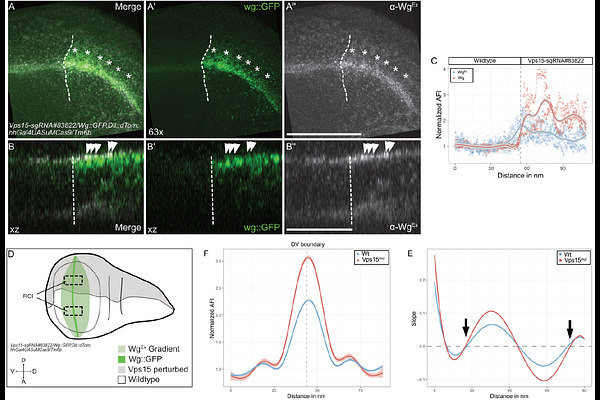Loss of class 3 PI3K complex leads to retention of Wg at the apical membrane in polarized tissue

Loss of class 3 PI3K complex leads to retention of Wg at the apical membrane in polarized tissue
Holzem, M.; Pavlovic, B.; Munz, M.; Gerwin, J.; Lampe, M.; Port, F.; Boutros, M.
AbstractWnt signaling plays an essential role in organismal development and stem cell maintenance, and is frequently dysregulated in various human diseases. Wnt proteins are lipid-modified, secreted morphogens that activate biological programs in a concentration-dependent manner. Their secretion depends on specialized trafficking components, including the cargo receptor Evi/Wls, and often involves apical re- internalization and transcytosis. However, several critical steps in Wnt/Wg trafficking remain poorly understood. In this study, we conducted an in vivo CRISPR-Cas9 screen in the developing Drosophila wing imaginal disc to uncover novel regulators of Wg secretion. We identified Vps15, a regulatory subunit of the class III phosphatidylinositol 3-kinase (PI3K(III)) complex, as an essential factor for Wg trafficking at the apical membrane. Loss of Vps15 leads to pronounced apical accumulation of Wg in producing cells, elevated extracellular Wg levels, and reduced expression of Wg target genes. Our data indicate that PI3K(III) activity is required for efficient apical endocytosis of Wg, independent of Evi/Wls abundance. These findings reveal a previously unrecognized role for the PI3K(III) and lipid biogenesis in Wg secretion within polarized epithelia, enhancing our mechanistic understanding of Wnt trafficking.